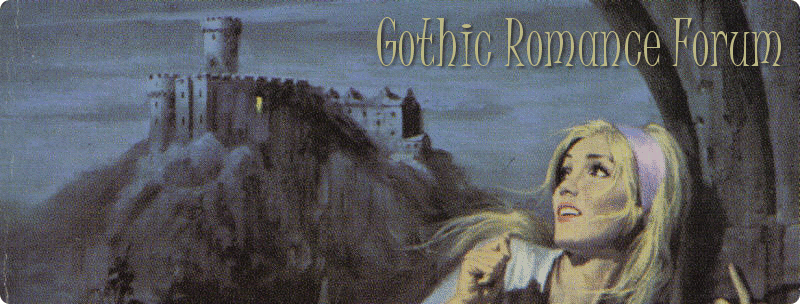10-30-2007, 09:11 PM
Although I agree with your idea of a "Classic" Gothic, I wanted to make a distinction between the works of Gothic presented in the pre-20th century era and those of the 20th century. I feel there is a lot of difference between the two types, in characterization and plot.
The "formula" for more modern Gothics (such as you mentioned) really started with "Jane Eyre". However, I would still classify "Jane Eyre" as Gothic in literary terms because of the fact that it was the leader in its genre.
As for romantic suspense, I think some can be classified as Gothic, but some are just mystery thrillers with a little romance. The earlier ones (from the 1950s-1970s) are probably more like Gothics. However, more recent ones are harder to distinguish. As an example, I've read some Mary Higgins Clark mysteries that could be classified as Gothic and many others as "romantic suspense" or "romantic mystery". So many mysteries these days contain some element of romance that it would be preposterous to call all of them Gothics. What makes one a Gothic romance and another a mystery with romance? It's hard to define, but I believe hard-core Gothic romance lovers can detect a subtle difference between the two. Modern settings may not provide the "ambiance" or "atmosphere" of more traditional Gothics, yet you can't rule-out a Gothic based on just setting.
The "formula" for more modern Gothics (such as you mentioned) really started with "Jane Eyre". However, I would still classify "Jane Eyre" as Gothic in literary terms because of the fact that it was the leader in its genre.
As for romantic suspense, I think some can be classified as Gothic, but some are just mystery thrillers with a little romance. The earlier ones (from the 1950s-1970s) are probably more like Gothics. However, more recent ones are harder to distinguish. As an example, I've read some Mary Higgins Clark mysteries that could be classified as Gothic and many others as "romantic suspense" or "romantic mystery". So many mysteries these days contain some element of romance that it would be preposterous to call all of them Gothics. What makes one a Gothic romance and another a mystery with romance? It's hard to define, but I believe hard-core Gothic romance lovers can detect a subtle difference between the two. Modern settings may not provide the "ambiance" or "atmosphere" of more traditional Gothics, yet you can't rule-out a Gothic based on just setting.



